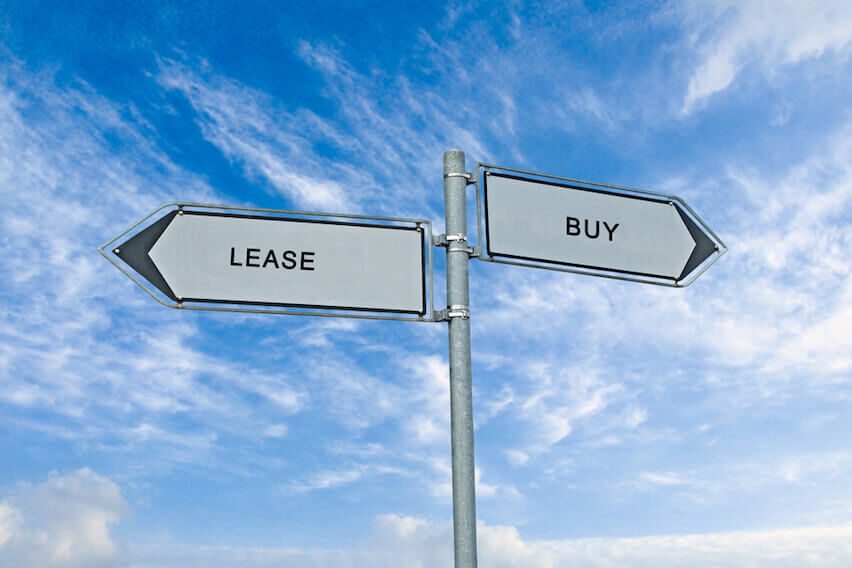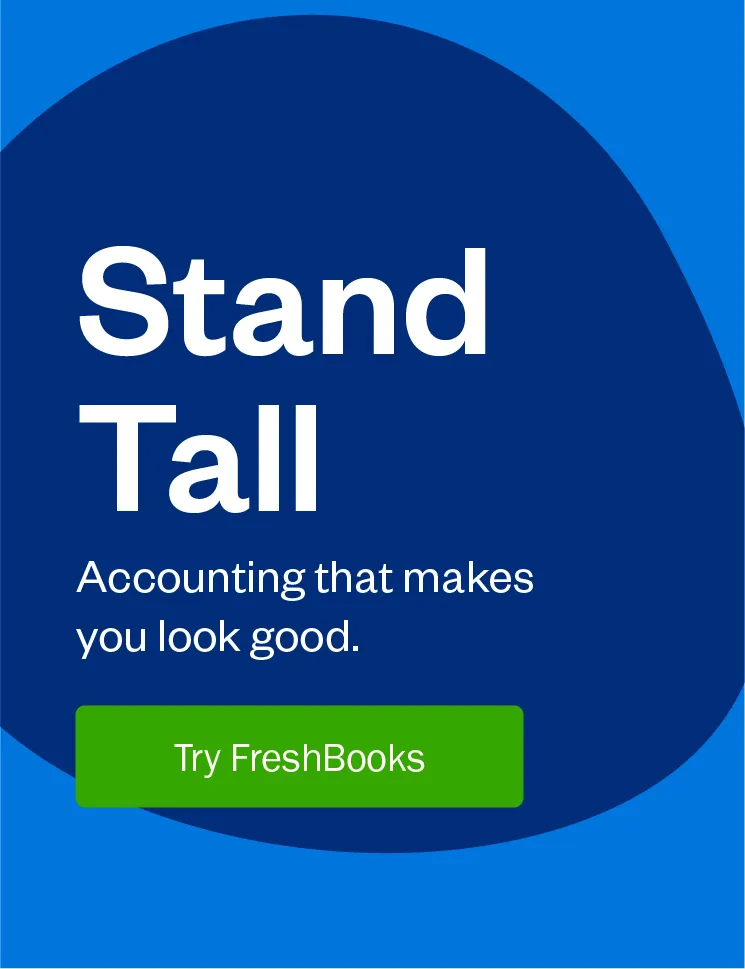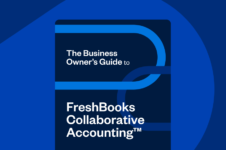Can’t decide whether to lease or buy equipment you need for your small business? Don’t worry, asking yourself these 6 questions will help.

It doesn’t matter what line of work you’re in or even whether you’re a new or growing business, equipment is crucial for business success.
Sure, some businesses will have more substantial equipment needs than others (think of a writer who just needs a laptop vs. a photographer or videographer who has more complex equipment needs). But in the end, every business needs equipment.
While this need for equipment is universal, how we go about acquiring it differs. Indeed, when obtaining new equipment, we invariably have to choose between leasing and buying.
Should You Lease or Buy?
Imagine the scenario of Joe who runs a photography business: 6 months after launching his business he lands an exciting deal. The only catch is that the deal requires him to get his hands on a specialized piece of equipment that he usually doesn’t use: A sophisticated lighting system that costs a pretty penny.
Because it’s a massive opportunity, he decides to do everything in his power to get his hands on this lighting system. He eventually settles on a product and decides leasing is the best option.
Though—at the time—Joe made the decision swiftly, he did, in fact, go through a detailed decision-making process. In this post, we share that process by looking at 6 key questions you should ask yourself when choosing between leasing and buying.
Lease or Buy Question #1: How Often Will I Use the Equipment?
When Joe obtained the lighting system, he knew that the project was a once-off and that he wouldn’t be using the lighting system that often. It wasn’t worth buying and storing this costly piece of equipment as he knew he might only use it once or twice a year. So, it made perfect sense to rent it.
Of course, this may not be the best option for you. In fact, if you plan to use your equipment often, buying it may be the better option. Think of that camera or lens you need to take the perfect photo.
Lease or Buy Question #2: How Much Money Do I Have?
Even if you plan to use the equipment often and decide that purchasing it is better, you may find that you don’t have enough cash available. In these instances, leasing may be the wiser option, especially if you urgently need that equipment.
Your decision to lease or buy shouldn’t only be driven by your current financial situation, but also your ability to make future payments.
For example, let’s say that you have $1,000 in your bank account which is enough to buy a camera lens that costs $800. You decide to go ahead with that purchase, only to discover that at the end of the month you don’t have enough cash to pay rent and cover your other bills.
The scenario shows you the importance of thinking ahead to make sure you have enough cash to meet all your financial obligations.
If you foresee that making payments will be a struggle, you may want to hold off on that purchase and wait until you can afford it. And, if holding off isn’t an option, then go with the lease (with the understanding that the rental will cost you more in the long run).
Lease or Buy Question #3: Does It Have to Be New?
Let’s assume you’ve conducted a financial review and discovered that you don’t have enough money to buy the equipment and also cover your short-term expenses.
Let’s also assume that you urgently need that equipment. While leasing may seem like your only option, if you don’t have enough money for something new, you may want to purchase it second-hand.
Indeed this is precisely what I did when I purchased my MacBook Air for my writing business back in 2016. I managed to find what was practically a new laptop at a hugely discounted price.
While most people will most certainly buy their laptop outright, this example illustrates how you can get amazing second-hand deals if you do your research.
A word of caution: Buying used equipment comes with risks. You often don’t have the same warranties or protection that you have when purchasing it new, and if there are any failures, you’ll foot the bill to fix it (especially if there’s no warranty).
Lease or Buy Question #4: What Are the Tax Benefits?
Leasing is an operational expense and is, in most cases, 100% tax deductible under the 179 IRS tax code. With leasing, you can usually deduct the full lease payment upfront.
Purchasing equipment also has tax benefits, and while these incentives are more significant for purchases, they do have their limits.
Even if the equipment you purchased doesn’t qualify for a tax incentive under the 179 IRS tax code, you can write off a portion of the equipment as depreciation and claim back on that.
Lease or Buy Question #5: How Quickly Does the Technology Change?
Technology can quickly become outdated and depreciates with time. So, you may want to opt for a lease to ensure that you always have the latest technology available (remember that with a lease, the onus is on the company you’re leasing from to ensure that technology is maintained and up-to-date).
If having the latest technology isn’t essential for your business, buy the equipment instead.
Lease or Buy Question #6: What Are the Risks?
Many business owners prefer to buy equipment, so they don’t have to worry about damaging what they don’t own.
The downside of this, of course, is that you have to carry insurance because if the equipment does get damaged, you have to replace it.
Conclusion
There’s no denying that equipment is essential for the success of any business. Of course, how we go about acquiring this equipment differs from business to business.
You can choose between leasing and buying. Which is better for your business, is entirely subjective and depends on you and your financial situation.
So, to help you decide, ask yourself the 6 critical questions outlined in this post.
What do you prefer? Leasing or buying?

Written by Nick Darlington, Freelance Contributor
Posted on July 17, 2018
 What Is Working Capital? Here’s Everything You Need to Know
What Is Working Capital? Here’s Everything You Need to Know





